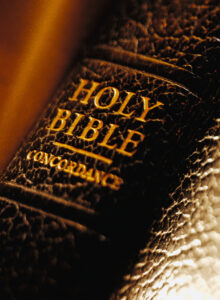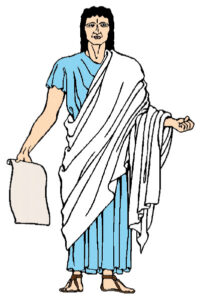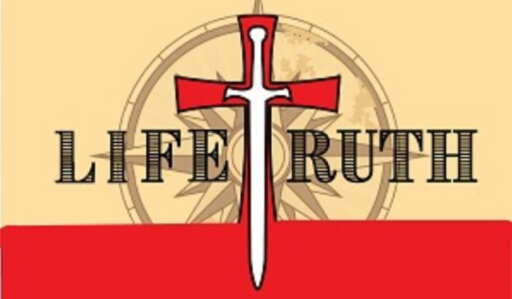We examine a controversial passage of scripture. Whether it should even be in the bible or not, it contains a few important lessons for Christians. In stepping back, we find in John 7:52 finds the leaders arguing among each other. It connects seamlessly with chapter 8, verse 12 very nicely, where Jesus is confronted by his accusers.
The actual start to this passage is at verse 53, where it pictures the religious leaders going home, and verse 8:1 has Jesus going to Mt. Olive. They come together again in the temple in verse 2. It’s likely nobody went anywhere, and though this account may be factual, it didn’t take place here in john’s gospel.
Let’s get started with John 8:1

The Mount of Olives. A place Jesus is known to retreat, to get rest, and instruct his disciples. It’s a hill, opposite Jerusalem.
References: Mat 21:1; Mar 11:1, Mar 13:3; Luk 19:37
Moving on to when the action begins, John 8:2
Jesus had a certain connection to the temple: In various references we find…
- Jesus could be found being about his father’s work in the temple.
- He is often found preaching, even though none hear, or they reject him.
- He would be preaching publicly and daily in the temple, then going to rest on the Mount of Olives.
Regarding the Mount of Olives, he used that time not only for resting but for privately teaching disciples.
References: Joh 4:34; Ecc 9:10; Jer 25:3, Jer 44:4; Luk 21:37
Mat 5:1-2, Mat 26:55; Luk 4:20, Luk 5:3
The controversy begins. John 8:3,4
The scribes and the Pharisees brought a woman who had been caught in adultery and placing her in the midst
they said to him, “Teacher, this woman has been caught in the act of adultery.
(ESV)

In John 8:5 we find some memory lapses.
The religious leaders invoked the law but conveniently forgot a few important points. Namely, both parties caught in adultery are to be stoned. The law is adamant about this.
Jesus fulfills, not abolishes the law. Sin condemns each of us, but he is the only one who is qualified to pay for the sin of the world, fulfilling the death sentence the law requires.
Jesus is constantly presented with trick questions, difficult questions, but he always answered the truth.
References: Lev 20:10; Deu 22:21-24; Eze 16:38-40, Eze 23:47
Mat 5:17, Mat 19:6-8, Mat 22:16-18
How did Jesus respond to their serious charges? John 8:6 shows his simple but effective answer.
For people who had seen Jesus in person and all his miraculous works, the religious leaders were unashamed in testing him.
Jesus was provoked by scribes, Pharisees, and lawyers. He was watched and spied on, with his enemies always looking for something to trip him. Yet as Jesus stooped, he Put them to shame by writing in the dust. Was his Writing in the dust like the writing on the wall in Daniel’s time?
Jesus ignored the traps set before him. He didn’t allow himself to be lured into their arguments. He knew there is a time to speak and a time for silence. He demonstrated his own teaching. as recorded in Matthew’s gospel, “To be a sheep among wolves. To be sly as a serpent and innocent as a dove.”
References: Num 14:22; Mat 19:3; Luk 10:25, Luk 11:53-54, Luk 20:20-23; 1Co 10:But: Joh 8:2; Gen 49:9; Jer 17:13; Dan 5:5
Psa 38:12-14, Psa 39:1; Pro 26:17; Ecc 3:7; Amo 5:10, Amo 5:13; Mat 10:16, Mat 15:23; Mat 26:63
In only a few words in John 8:7, Jesus provided the conditions to deliver justice on this woman.
Jesus’s silence spoke volumes to these accusers, and the weight of his minimalistic response spoke to the shreds of their remaining conscience. Even the temple guards in the previous chapter knew that “No one spoke like this man.” Jesus words were words of wisdom, never foolish. They were words like fire. Words that bring conviction that leads to worship. Words that are gracious, seasoned. and Sharp as a sword, piercing to the bone.
For a law that required the judgment of Death to hinge on the account of two witnesses, and old testament warnings that the law not be judged by wicked men, Jesus reminds us that the law is a balancing act. Crime is transactional. Justice demands a fair payment. The same set of weights need to be used for all, for transacting sales and purchases alike. No redefining terms or twisting the meanings of words. When it comes to judging, the measure used to judge is to also be measured back on you.
Jesus didn’t hesitate to point out the hypocrisy of his accusers. At other times he compared them to whitewashed tombs, but with death inside. If there was anyone in the crowd qualified to judge and condemn it was Jesus. All he did was to put that qualification before the accusers.
References: Joh 7:46; Pro 12:18, Pro 26:4-5; Jer 23:29; 1Co 14:24-25; Col 4:6; Heb 4:12-13; Rev 1:16, Rev 2:16, Rev 19:15
Deu 17:6; Psa 50:16-20; Mat 7:1-5, Mat 23:25-28; Rom 2:1-3, Rom 2:21-25
The ball was back in the court of the accusers. Jesus returned to silence and writing in the dust, as we find in John 8:8,9.
And once more he bent down and wrote on the ground.
But when they heard it, they went away one by one, beginning with the older ones, and Jesus was left alone with the woman standing before him.
(ESV)
The silence of Jesus was convicting. The accusers were made aware of their own guilt. The heart knows its sin. Nothing is covered or in the dark. All is known in the light of God’s judgment. His law is written on the heart of men. The conscious is what convicts each and every one of us. God catches men in their own traps.
When there is a victory for the godless, it is sure to be short-lived. Shame and dishonor will be put on them instead.
References: Gen 42:21-22; 1Ki 2:44, 1Ki 17:18; Psa 50:21; Ecc 7:22; Mar 6:14-16; Luk 12:1-3; Rom 2:15, Rom 2:22; 1Jn 3:20
Job 5:12-13, Job 20:5, Job 20:27; Psa 9:15-16, Psa 40:14, Psa 71:13; Luk 13:17
Joh 8:2, Joh 8:10, Joh 8:12
Back to the woman, and the reason for the latest disturbance. In John 8:10 the shamers are all gone.
References: Isa 41:11-12
Before wrapping up, we insert a challenge to the teaching in this passage. Does Jesus repudiate, or reject the concept of capital punishment here? The challenge compares Romans 13:4 seemingly to contradict the forgiveness shown here. In short, the Romans passage allows for the government to conduct judgment to uphold God’s moral law.
In this passage, Jesus never claims the woman doesn’t deserve condemnation. He doesn’t stop the men from stoning her, he only points out that they are also far from sinless. As the one and only sinless one in the house, Jesus knew that he would die to pay for her sin, so the price is still there. It would still need to be covered, but it was on his account, not hers.
Wrapping up, John 8:11 carries the weight of both condemnation and forgiveness.
The one person qualified to, and with a right to condemn, Jesus doesn’t judge. He saves.
He doesn’t judge in this world. Men do. Rulers and governors are God’s servants. Authorized to use the sword. If anything, Christians are to judge inside the church first, but Not the world.
Forgiveness doesn’t mean a free ticket to sin. It doesn’t mean that God will now lovingly accept the ugliness of your favorite sin. Jesus tells this woman, “Go. Sin no more.” He paid for the condemnation, but he warns to not continue racking up the price tag.
If your heart is truly his, you won’t want to keep living in sin. Why would you want to drive another nail into the person you love? Why would you want to lay another lash of the whip on the back of the one who took all those shortcomings to the grave for you?
Seek God. Repent to live eternally. There is joy in heaven over each and every repentant sinner. Don’t presume on God. His mercy and grace are intended for our repentance. To turn to him in faith. To wait for judgment day will be too late.
References: Joh 8:15, Joh 3:17, Joh 18:36; Deu 16:18, Deu 17:9; Luk 9:56, Luk 12:13-14; Rom 13:3-4; 1Co 5:12
Joh 5:14; Job 34:31; Pro 28:13; Isa 1:16-18, Isa 55:6; Eze 18:30-32; Mat 21:28-31; Luk 5:32, Luk 13:3, Luk 13:5, Luk 15:7, Luk 15:10, Luk 15:32; Rom 2:4, Rom 5:20-21; 1Ti 1:15-16; 2Pe 3:15; Rev 2:21-22
![]()
Credits
consider supporting the podcast through our Patreon page.
feel free to drop us an email, use the comments on the show note page, or call our voicemail at (401)753-4844.
Follow us on social media, and join us in what we’re doing there.
Twitter: @HPNCast
Facebook Page: @LifeTruthPage
Facebook Group: HPNCast Community

Thanks to the recorded comments from J Vernon McGee. His ministry and daily bible study lives on through Through the Bible Ministries (ttb.org)
Scriptures in the show notes and episode are quoted from the King James Version, except when read by Keith, then it’s the NASB.
Scripture quotations are from The ESV® Bible (The Holy Bible, English Standard Version®), copyright © 2001 by Crossway, a publishing ministry of Good News Publishers. Used by permission. All rights reserved.”
“Scripture taken from the NEW AMERICAN STANDARD BIBLE®,
Copyright © 1960,1962,1963,1968,1971,1972,1973,1975,1977,1995
by The Lockman Foundation. Used by permission.”
Podcast: Play in new window | Download (Duration: 1:09:33 — 63.7MB)
Subscribe: Apple Podcasts | Amazon Music | Blubrry | Podchaser | RSS | More

